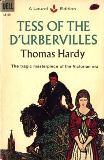 Just sitting here having a coffee in the Starbucks at Chapters. Surrounded by books, and other caffeine addicts, like myself.
Just sitting here having a coffee in the Starbucks at Chapters. Surrounded by books, and other caffeine addicts, like myself. If I were rich (wealthy) and I mean stinkingly, pukingly, exorbitantly RICH, I would probably spend even more time in coffee shops. Plus, I would open my own chain of stores, called Coffeepuddle.
In fact, I would tour the world, and I would drink coffee all over the place. I would sit at cafes and write stories, and read books. And eat biscotti. And write vignettes about biscotti and macaroons, and about how fun it is to be so horrendously wealthy that I do not have to go to work ever.
But as it is (alas!).... my normal eight-to-five work is totally cutting into by biscotti time.
When all is said and done, I only have a couple of hours each evening to have a wee bit of “me-time” where I can sit and drink a coffee and say a few mumbly prayers over a small assortment of lottery tickets.......
Tonight, as I sit here I am thinking of one of the best books I have ever read. In several ways, it really marked my inauguration into the world of literature.
The book is Thomas Hardy’s Tess of the D’Urbervilles.
Many years ago, after completing a grueling mind-numbing week of exams in college I sat down to read this story, as a sort of reward for living through the previous five days. I have since read many of Hardy's novels, but Tess remains the dearest to me.
Tess is the innocent village girl who is seduced by the stinkingly, pukingly, exorbitantly wealthy rake, Alec d’Urberville.
Early on, in chapter 4, Tess is on a journey at night with her little brother Abraham and he is asking her if all the stars in the night sky are worlds similar to ours. She compares them to apples on a tree and concludes that most of them are "splendid and sound - a few blighted".
"Which do we live on?" asks Abraham.
"A blighted one," says Tess.
Minutes later, their carriage crashes into some oncoming traffic... the family horse (Prince) is killed, and Tess is plunged through this incident into predicaments that will result in her complete undoing.
Those who are familiar with Hardy will know of his fatalistic tendencies. His themes were not exactly "jolly". And here, in the above incident he sets that ominous tone that is so omnipresent in his work. Tess is the story of an exceptionally gifted and beautiful peasant girl of decayed aristocratic stock who is betrayed by two men: one is the rich and sensuous Alec D'Urberville, the seducer of her body and for a while of her emotions; by him she has a child which dies in infancy. The other is the intellectual free-thinking son of a clergyman (Angel Clare), whom she loves with her whole being, and who abandons her when he hears, immediately after their marriage, of her earlier violation.
It is a picture reminiscent of that Victorian double-standard that similarly condemned Hester Prynne in Hawthorne's The Scarlet Letter. Angel fully expects Tess to forgive his own past indiscretions (and she does), but he, in turn, will not forgive hers! More precisely, he flounders in his disillusionment, and cannot move from forgiveness to forgetness... as is obvious when he says to her in Chapter 35, "O Tess, forgiveness does not apply to the case. You were one person; now you are another."
The double-standard breaks our heart even as we read of it.
And hearts are broken here.
It is not until many years later that Angel realizes his error by pondering on the Biblical story of "the wife of Uriah being made a queen" (2 Sam.11:1-27). Realizing (a bit too late) that he had judged Tess by the deed rather than the will, he searches for the girl... only to find that the extreme poverty of her family has driven her back to the other man. So strong is Tess's love for Angel Clare, and so powerful her disgust at what Alec D'Urberville has forced her to become, that she kills Alec. Now husband and wife are re-united but on the run from the police, and they spend a few days of loving reconciliation before Tess is arrested, tried, sentenced to death for murder, and.... [I shall say no more...]
Hardy considered this to be his finest novel, and claimed that Tess was the most deeply felt character he ever created. Originally published in 1891, it yet remains a timeless story of the power of love to overcome the most profound betrayal. Significant is Hardy's choice of the subtitle: "A Pure Woman".
Tess.
Unreservedly recommended, by me.
Present day peasant-blogger..... future coffeeshop-owning-millionnaire-mogul-raconteur!
_____________
No comments:
Post a Comment